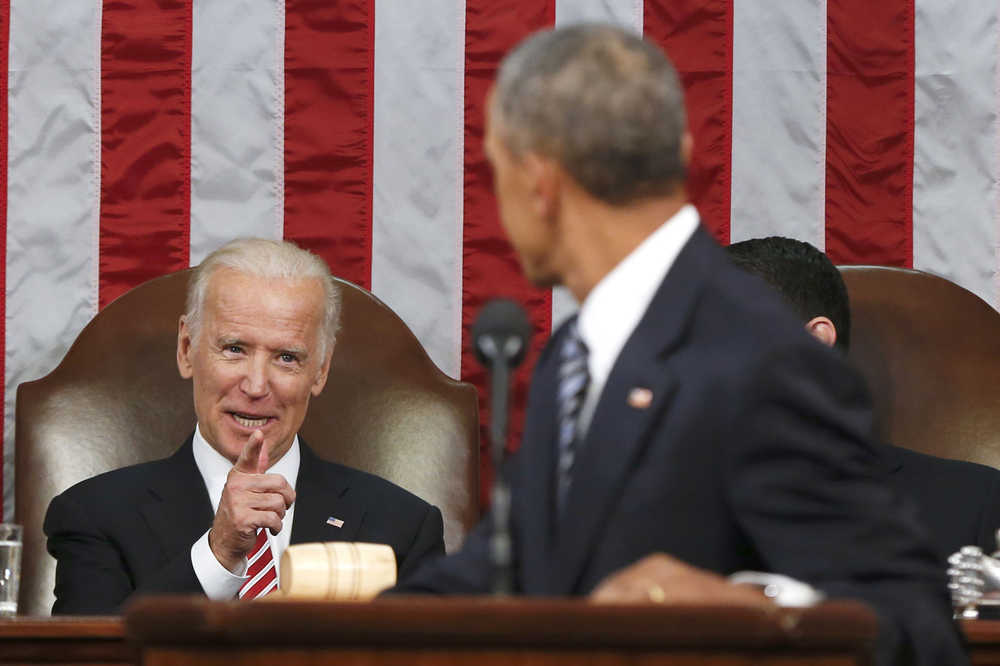WASHINGTON — Four weeks after announcing he wouldn’t run for president, Joe Biden returned to the world-renowned cancer center in Texas where doctors had tried to save his son’s life.
Officially, the vice president was in Houston to speak about infrastructure spending and raise money for Democrats. Left off of his public schedule was a meeting with Dr. Ronald DePinho, president of MD Anderson Cancer Center, whose Moon Shots Program has set out to end the dreaded disease.
Since declaring his own “moonshot” to cure cancer three months ago, Biden researched what’s holding back a cure, searching for answers with all the meticulousness of a physician diagnosing disease. His conclusion: The hold-up, in large part, lies in the cancer world itself.
“My grandpop used to say, ‘Joey, there’s three kinds of politics’” — church politics, labor politics and regular politics, Biden recalled recently, before adding one of his own. “Well, there’s four kinds. There’s cancer politics.”
He deemed that particular brand even more vexing than the rest.
As one of his final acts in office, Biden has resolved to “break down silos” he says are pervasive throughout the sprawling and fragmented world of oncologists, scientists and benefactors. Meetings with nearly 200 of them revealed a community rife with competition, territorialism and resistance to information-sharing that’s left researchers and their discoveries cloistered in their own corners, aides and others who met with Biden said.
Asked how Americans could help, Biden minced no words: “Demand collaboration from the scientific community,” he wrote on Twitter.
Biden, who will kick off his initiative Friday with a tour and discussion at Philadelphia’s Abramson Cancer Center, has yet to lay out exactly what he’ll do over the next 12 months that hasn’t been done in the half century since Richard Nixon declared war on cancer.
But advisers said in addition to pushing for more funding, Biden would use his influence to encourage data-sharing about patients and treatment outcomes, so researchers from various institutions can better build on each other’s work. A key focus will be promising advances in immunotherapy, which uses the immune system to attack tumors, and “precision medicine,” which personalizes treatments based on the genetic makeup of a patient’s tumors.
For Biden, the emotional undertones of his mission are difficult to avoid. After his 46-year-old son, Beau Biden, died from brain cancer in May, Biden entered a period of painfully public mourning, followed eventually by his decision against getting into the presidential race.
“This is still a blow that he’s still recovering from,” said former Sen. Ted Kaufman, a Biden confidante for many decades. “He’s in his problem-solving mode. He’s more comfortable in this area because of his desire to eliminate this thing that caused him so much damage.”
Biden is not a doctor, nor a medical researcher. So when he announced a bid “to cure cancer,” more than a few eyebrows were raised. Some wondered whether Biden was raising expectations in a way he could later regret.
“I’m an eternal optimist, but I’m not going to go around saying we’re going to cure cancer in five years. That’s just not realistic,” said Dr. George Demetri, a Harvard Medical School professor and researcher at the Dana-Farber Cancer Institute who met with Biden’s staff. “There’s a fine line between having big, hairy, audacious goals and realistic goals, so the public doesn’t come back and say in five years, ‘Hey, you didn’t deliver on that, pal.’ “
Even President Barack Obama, quizzed by a fourth-grader, said Thursday that cancer “probably won’t be cured in my lifetime, but I think it’ll be cured in yours.”
Immense progress has been made in recent years. Survival rates for most cancers are increasing, although the American Cancer Society still predicts nearly 1.7 million new cancer cases this year and nearly 600,000 deaths.
In a blog post this week coinciding with Obama’s State of the Union address, Biden offered a more measured but still ambitious goal for himself: to double the rate of progress so that researchers make 10 years of progress in what would normally take five. “This is our moonshot,” he said.
Because cancer takes hundreds of forms, it can’t be eradicated by any single advance. Cancer researchers who met with Biden recently said he was intrigued by the possibilities for improving prevention and early detection.
Skewing typical partisan divides, the issue also offers rare prospects for Democrats and Republicans to make common cause in Obama and Biden’s last year. Sen. Roy Blunt, a Missouri Republican, worked directly with Biden last month to secure a long-awaited funding boost for the National Institutes of Health, including $260 million for cancer.
“What does ‘cure cancer’ mean? Does it mean prevent cancer? Does it mean nobody dies from cancer? I don’t know about that,” Blunt said in an interview. “But I do know that we can enhance dramatically the way we look at cancer, understand cancer and deal with it.”
___
AP Medical Writer Lauran Neergaard contributed to this report.
___
Reach Josh Lederman on Twitter at http://twitter.com/joshledermanAP. His work can be found at http://bigstory.ap.org/author/josh-lederman

